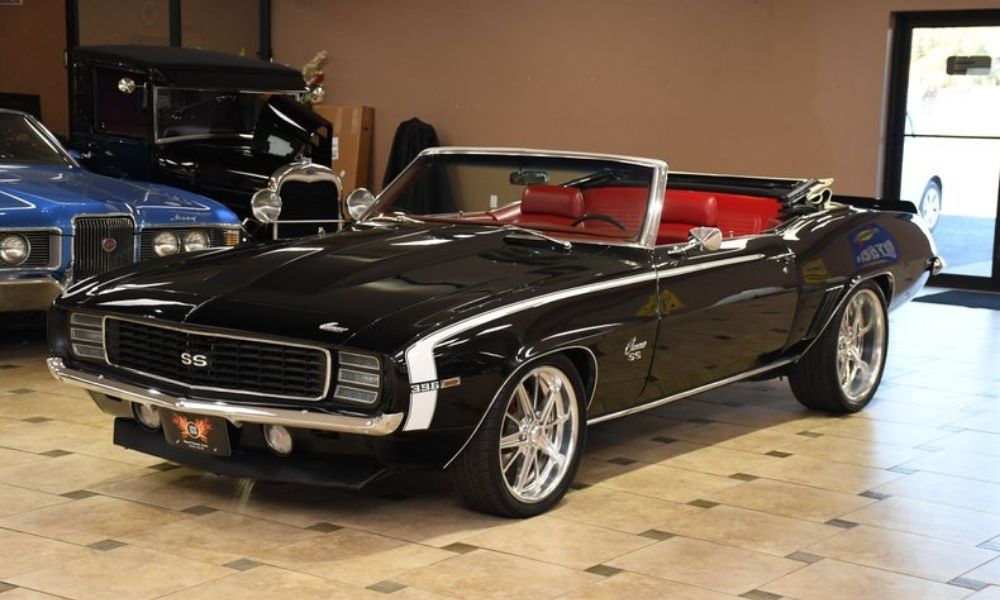In recent years, there has been a remarkable resurgence in the popularity of muscle cars. These iconic vehicles, which first gained prominence in the 1960s and 1970s, are experiencing a renaissance in modern times. With their powerful engines, sleek designs, and nostalgic appeal, muscle cars have captured the hearts of car enthusiasts and have become a symbol of American automotive excellence.
The Rise of Muscle Cars
The origins of muscle cars can be traced back to the post-World War II era when American automakers began producing high-performance vehicles targeting the younger generation. These cars were characterized by their large V8 engines, aggressive styling, and impressive horsepower. They were designed to deliver exhilarating speed and thrilling driving experiences.
During the 1960s and 1970s, muscle cars reached their peak popularity. Car manufacturers such as Ford, Chevrolet, and Dodge introduced iconic models like the Ford Mustang, Chevrolet Camaro, and Dodge Challenger. These vehicles embodied the spirit of the era and became cultural symbols of rebellion, freedom, and power.
The Decline and Comeback
Unfortunately, the muscle car era began to decline in the 1980s due to various factors, including stricter emission regulations, rising fuel prices, and changing consumer preferences. Many classic muscle car models were discontinued, and American automakers shifted their focus towards producing more fuel-efficient vehicles.
However, in the early 2000s, a new wave of muscle cars emerged, reigniting interest in these legendary vehicles. Car manufacturers recognized the enduring appeal of muscle cars and started reintroducing modern versions of the iconic models. The Ford Mustang, Chevrolet Camaro, and Dodge Challenger made their triumphant return, incorporating modern technologies and design elements while staying true to their heritage.
The Modern Muscle Car Experience
Today, driving a modern muscle car is an exhilarating experience that combines the raw power of the past with the technological advancements of the present. These vehicles are equipped with cutting-edge engines, advanced suspension systems, and state-of-the-art safety features, making them not only fast but also safe and comfortable.
Moreover, modern muscle cars offer a wide range of customization options, allowing owners to personalize their vehicles according to their preferences. From performance enhancements to cosmetic modifications, enthusiasts can transform their muscle cars into unique works of art that reflect their individuality.
The Influence on Pop Culture
Just like their predecessors, modern muscle cars have become cultural icons and have left a significant impact on popular culture. They have been featured in numerous movies, TV shows, and music videos, further cementing their status as symbols of power, freedom, and rebellion. The rumbling sound of a muscle car engine has become synonymous with excitement and adrenaline.
Furthermore, muscle car enthusiasts gather at various events and car shows, where they showcase their prized possessions and celebrate the rich history of these vehicles. These gatherings create a sense of camaraderie among enthusiasts and provide an opportunity to appreciate the beauty and craftsmanship of muscle cars.
The Future of Muscle Cars
The current renaissance of muscle cars shows no signs of slowing down. Car manufacturers continue to innovate and push the boundaries of performance, ensuring that these legendary vehicles remain relevant in the ever-evolving automotive industry. As technology advances, we can expect to see even more powerful and efficient muscle cars in the future.
The resurgence of muscle cars in modern times has brought back the excitement and nostalgia associated with these legendary vehicles. With their powerful engines, iconic designs, and cultural significance, muscle cars continue to captivate car enthusiasts and leave an indelible mark on the automotive industry.

